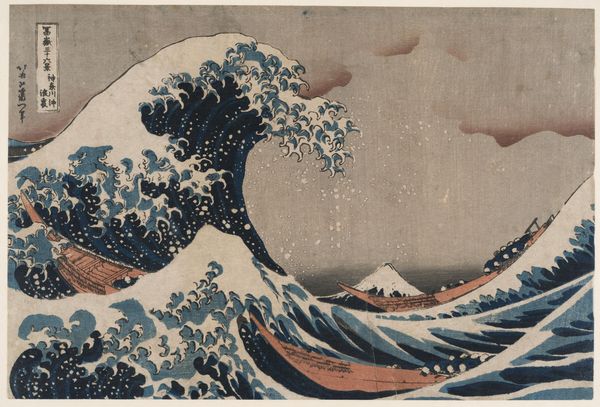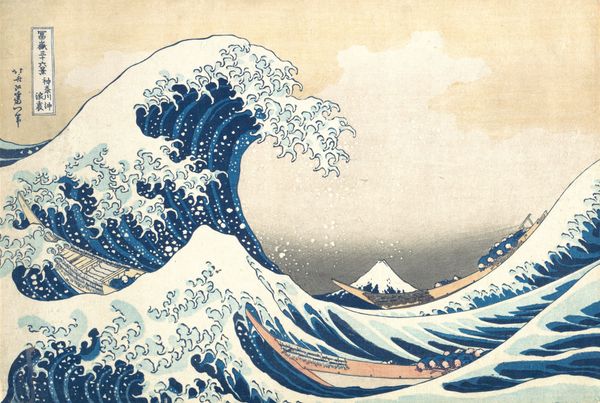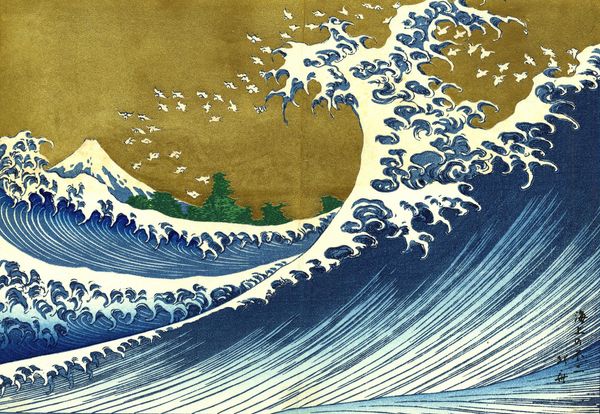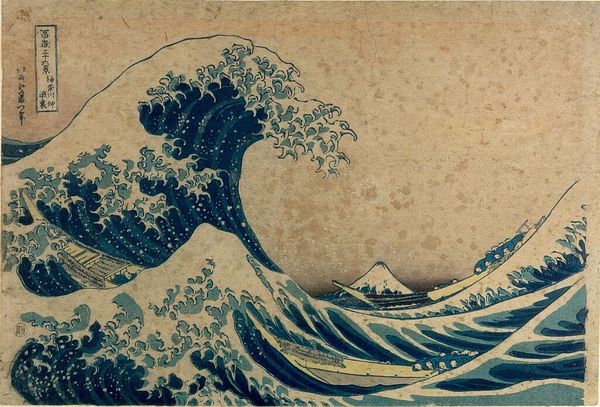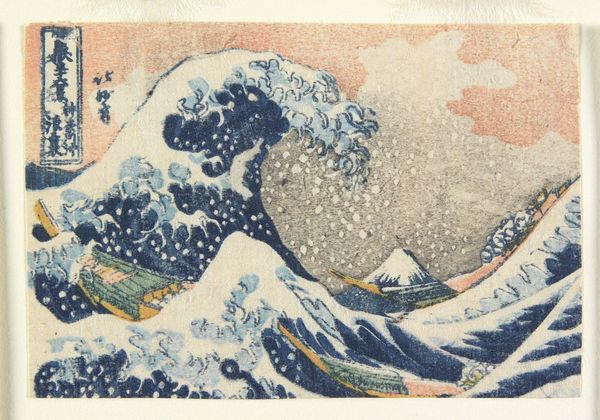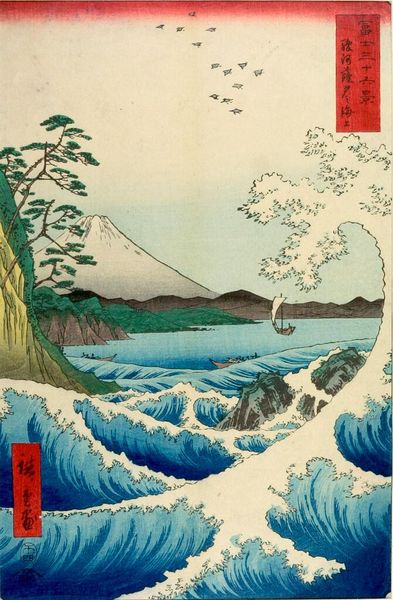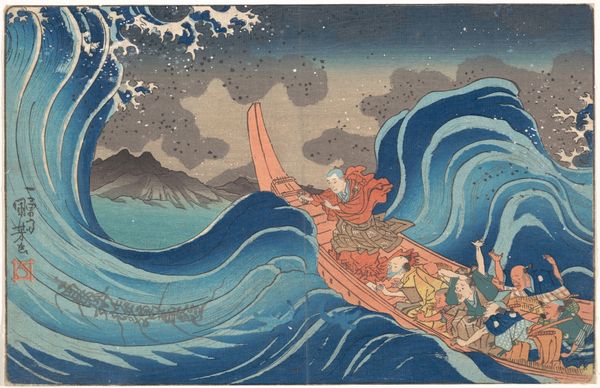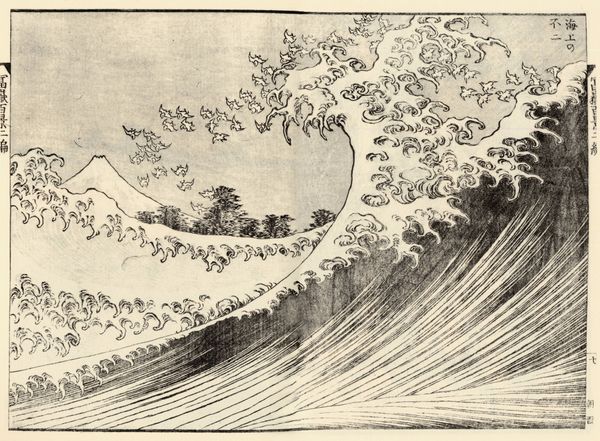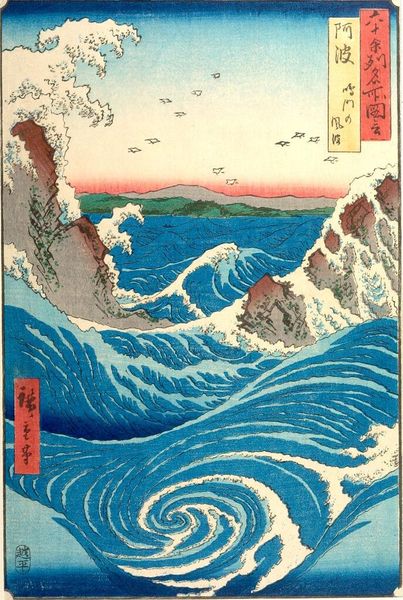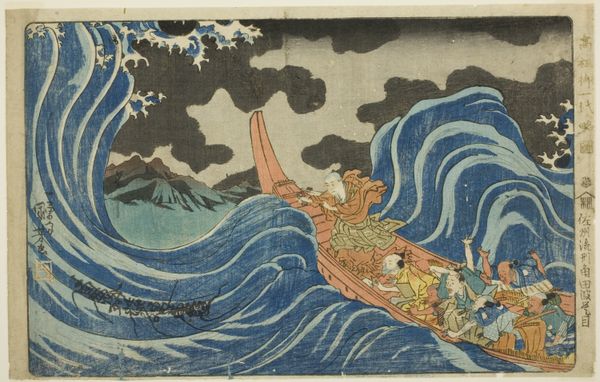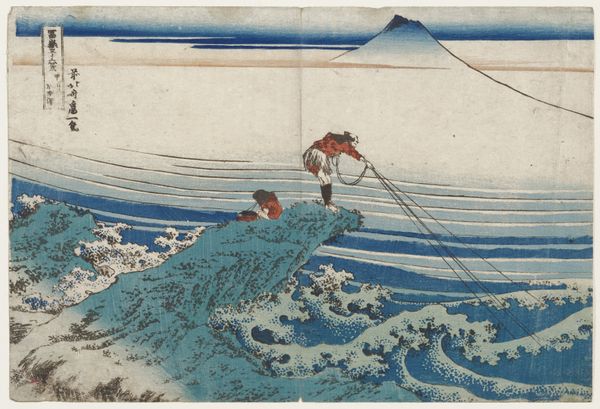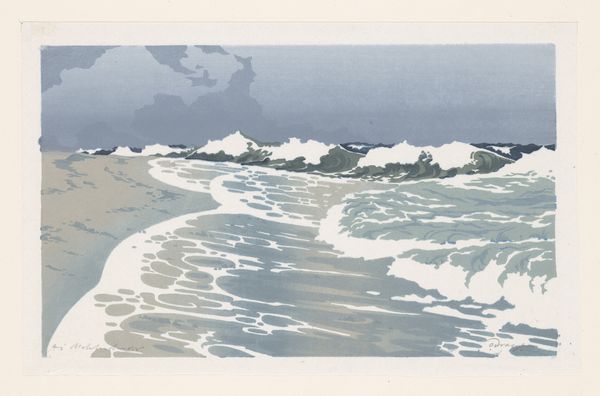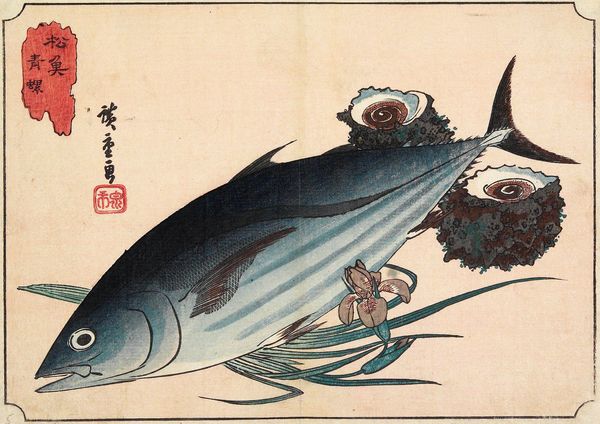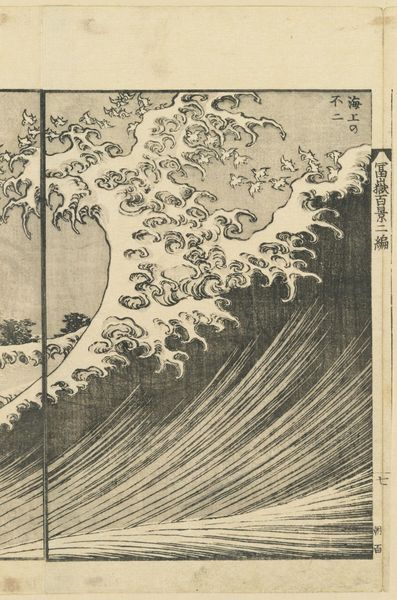
print, ink, woodblock-print
#
blue ink drawing
#
fine art illustration
# print
#
asian-art
#
landscape
#
ukiyo-e
#
japan
#
ink
#
woodblock-print
#
geometric
#
line
#
watercolour illustration
Dimensions: 10 1/4 × 14 13/16 in. (26 × 37.7 cm) (image, sheet, horizontal ōban)19 × 23 × 1 1/2 in. (48.26 × 58.42 × 3.81 cm) (outer frame)
Copyright: Public Domain
Editor: Here we have Hokusai's "Under the Wave off Kanagawa," a woodblock print from around 1830. The sheer scale of the wave is what strikes me first. What visual elements stand out to you? Curator: Certainly. The formal composition is masterful. Consider the dominance of the wave; its sinuous, almost claw-like crest. The artist uses line, repetition, and negative space to create a powerful sense of movement and tension. Observe the sharp, contrasting lines used to define the water’s texture against the flat planes of the sky and mountain. How does the color palette influence your reading of the work? Editor: I notice that it’s mostly blues and whites with small areas of shading, that creates a dynamic contrast in the composition. So how do you think about this interplay? Curator: The limited color palette intensifies the drama. The Prussian blue emphasizes the depth and power of the wave, while the white foam creates a sense of lightness and fragility, a paradoxical interplay. What about the structure? Notice how Mount Fuji offers a geometric stability that grounds the wild energy of the sea. The print relies on linear perspective that’s traditionally unusual in Japanese prints, isn’t it? Editor: Absolutely. So, the rigid lines of Mount Fuji in the distance contrast really nicely with the curving and exploding movement of the giant wave. I can appreciate how these formal elements—the line, color, shape, structure—all communicate together. Curator: Precisely. It reveals Hokusai’s deep understanding of visual language and its potential for conveying profound emotion. We appreciate the synthesis that takes place between composition and impact of this wonderful print.
Comments
minneapolisinstituteofart about 2 years ago
⋮
Under the Wave off Kanagawa is among the strongest images in Hokusai’s famous Thirty-six Views of Mount Fuji, and it has become an artistic icon, known around the world. Hokusai’s greatest rival, Utagawa Hiroshige, who specialized in views of famous places (meisho-e), criticized Hokusai’s unconventional compositions as too artificial. Certainly this image is the most extreme example of Hokusai’s unusual approach. Mount Fuji appears smaller here than in most of the series’ other images. The great wave, arching over the view of the distant mountain, dominates the composition. In fact, Fuji is nearly eclipsed and might even be overlooked by a casual viewer. As if to prevent that, Hokusai designed the curling foam of the wave so as to lead the viewer’s gaze toward the far-off sacred mountain. Three boats, tossed by the waves, symbolize the inconsequence of humankind in relation to the power and majesty of nature.
Join the conversation
Join millions of artists and users on Artera today and experience the ultimate creative platform.
